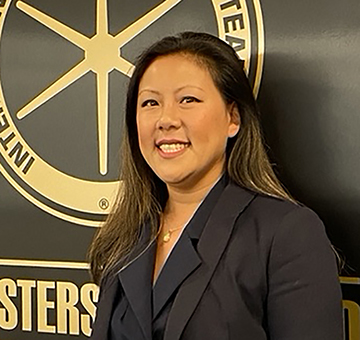Why politics matters — what we’ve won and the work ahead
June 29, 2022This is my 16th year as a Teamster. I was hired as political director in 2010 right after the merger of Joint Councils 7 and 38. That merger united more than 100,000 Teamsters from Bakersfield to the Oregon border and Reno under one tent. Overnight, we became one of the largest Joint Councils in the Teamsters. In fact, our Council is larger than 41 states.
I was hired to build political power so we can organize new workers into the Teamsters and negotiate the best wages and working conditions for our members. We’ve been very successful at that. And now it’s time to step up our game.
What we’ve been very successful at is connecting politics and legislation to our organizing campaigns and our fights with employers. And we haven’t been afraid to take on fights that people said were too big to win.
Since 2010, we’ve organized more than 20,000 workers into JC7. We used those organizing campaigns to win incredible policy, including protecting immigrant workers from retaliation for standing up for their rights at work; holding employers that use temp agencies liable when they violate state labor law; and eliminating the largest corporate welfare program in the country – a state program that gave out $950 million a year with no strings attached to companies like WalMart and FedEx. We expanded prevailing wages in the ready-mix industry, and we passed a law to deal with production quotas in Amazon and other warehouses and the algorithms that dictate work standards.
Our campaigns have won numerous awards from the California Labor Federation and others. These include our work to defeat Prop 32, an initiative that would’ve made it almost impossible for us to spend money on politics; our programs to pass AB5 and stop Prop 22, both directed at stopping the misclassification of workers; and our work to bust open Silicon Valley and organize 1,000 bus drivers at Facebook, Apple, and others. We got San Francisco to require those bus companies to demonstrate labor harmony if they want to use public bus stops, and when one tried to bust the union, the City pulled their permit. That was the last time anyone messed with us. Not only did we win $9/hour raises for those new Teamsters, but we also triggered 25% wage increases for other Bay Area bus drivers, as our school bus and paratransit employers had to keep pace to hold on to drivers.
Over the past few months, we’ve stopped a dozen planned Amazon developments dead in their tracks. We’ve developed a reputation as a great friend and a terrible enemy.
All of these victories come back to politics—being smart about who we endorse, giving them money, and getting out the vote for them. It also means blocking or holding up endorsements at labor councils from the people we have issues with.
Between California and Nevada, our Joint Council encompasses 24 congressional districts, 18 state senate districts, and 40 state assembly districts. We make endorsements in all of those races. But we also have more than 60 counties where local candidates run for city councils, school boards, and county government. Back in the first election cycle, we only made endorsements in 20 local races. By getting our locals involved in local politics, our endorsement list last November grew to be over 20 pages long. We made almost 300 endorsements and won 71% of our races.
In this June’s primary election, we won big also. We helped push three current and former central labor council leaders to the top in their primary elections: Cindy Chavez for San Jose Mayor, Liz Ortega for the 20th assembly district in Alameda County, and Tim Robertson for Senate District 8 in the San Joaquin Valley. These people will be our champions of the future.
Additionally, we swept both the Fresno and Stockton City Councils. In San Francisco, Locals 350 and 665 both took public leadership roles in two ballot initiatives. Local 350’s passed with more votes than any initiative, and 665’s lost by a thin margin. But it catapulted the political profile of both locals and the Teamsters in San Francisco.
The fights to come
I served as one of Governor Newsom’s appointees on the California Future of Work Commission. We saw how, as labor union membership declined in this country, income inequality rose. We dug into labor law reform and talked about misclassification and the gig economy, anti-trust laws, data, worker privacy, and of course automation.
Joint Council 7 is leading on all of those issues. We are working on anti-trust legislation that will allow government regulators to go after companies like Amazon for being so big that they can set wages and working conditions for the entire logistics sector.
On the automation front, we have a bill this year that would make the introduction of new technology, including automation, in public transit a mandatory subject of collective bargaining.
We are holding the line on driverless trucks and working to organize the autonomous passenger vehicle companies because they are already permitted in California. We can’t stop progress but we can redefine it so it includes workers.
As we gear up for our contract campaign at UPS, remember that behind every handheld computer, navigation system, and truck sensor are algorithms that analyze and direct every single thing a UPS driver does. The same goes for our public sector members who work with computers.
My call to action is for all of us to put our differences aside and be the leaders that our members and workers need right now. When we’ve been united, we’ve accomplished really big things.

